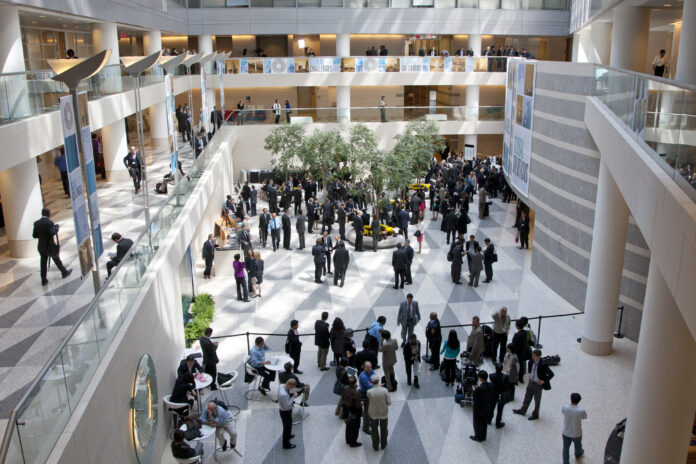In a dramatic move that underscores the World Bank’s commitment to accountability in global development projects, two Nigerian companies—Viva Atlantic Limited and Technology House Limited—along with their Managing Director, Mr. Norman Bwuruk Didam, have been slapped with a 30-month debarment following severe violations of the bank’s anticorruption rules.
The World Bank’s stern decision, announced on Monday, comes after a series of investigations into the National Social Safety Nets Project (NSSNP), a program designed to alleviate poverty by providing targeted financial transfers to Nigeria’s most vulnerable populations. The sanctions, which bar the companies and Didam from participating in World Bank-funded projects, follow clear evidence of fraudulent, collusive, and corrupt activities that threaten the integrity of international aid efforts in the country.
In an official statement, the Washington-based financial giant outlined its findings, revealing disturbing details about the companies’ dealings during the 2018 procurement process for the NSSNP.
“The debarment of Viva Atlantic Limited, Technology House Limited, and Mr. Didam is in connection with fraudulent, collusive, and corrupt practices linked to the 2018 procurement process for the National Social Safety Nets Project,” the statement read. “These actions included misrepresentation of bids, unauthorized access to confidential information, falsification of records, and corrupt inducements to public officials involved in the project.”
Fraud and Collusion: A Breakdown of the Scandal
The investigation painted a grim picture of how the companies and their CEO engaged in various illegal activities. According to the World Bank, the firms and Didam misrepresented a conflict of interest in their Letters of Bids and gained access to confidential tender information from government officials. This breach of trust and transparency resulted in a series of corrupt practices that undermined the very purpose of the NSSNP.
“Viva Atlantic Limited and Mr. Didam misrepresented the company’s experience in the bid and submitted falsified manufacturer’s authorization letters,” the statement further revealed. “They also offered and provided various inducements to officials overseeing the project, which constitutes clear corrupt practices.”
The World Bank’s anticorruption framework, designed to maintain integrity in its operations, was severely breached by these actions, prompting the debarment decision. By violating these principles, the implicated parties not only jeopardized the success of the project but also endangered the integrity of public funds meant for Nigeria’s most disadvantaged communities.
The 30-Month Sanction and Its Impact
For the next 30 months, the two Nigerian companies, along with Didam, will be barred from participating in any World Bank Group-funded projects. The debarment is a direct result of the severity of their actions, but the World Bank has outlined a path for their eventual reintegration into the global development fold.
As part of a settlement agreement, the companies and their CEO have acknowledged their wrongdoing and committed to meeting a set of stringent integrity requirements. These include mandatory ethics training for Didam, along with corporate policy reforms at both companies to enhance internal compliance with global standards.
“Mr. Didam must complete corporate ethics training, and both companies must implement reforms to ensure better internal controls and compliance with the World Bank’s integrity guidelines,” the statement explained. “Additionally, Viva Atlantic Limited and Technology House Limited have agreed to cooperate fully with the World Bank’s Integrity Vice Presidency during the debarment period.”
A Global Stand Against Corruption
While the debarment is a significant blow to the two Nigerian companies, the World Bank’s decision also reflects a larger commitment to tackling corruption across its global initiatives. The NSSNP is a crucial project aimed at improving the welfare of Nigeria’s poorest citizens, and the fraudulent activities linked to it threatened the very goals of economic development and poverty alleviation.
“The World Bank’s zero-tolerance policy for corruption is at the heart of this decision,” said a senior official from the World Bank’s Integrity Vice Presidency. “These debarments serve as a reminder that the integrity of our projects, especially those aimed at poverty reduction, must always come first.”
In addition to the 30-month ban, the companies face the possibility of cross-debarment by other multilateral financial institutions under the Agreement for Mutual Enforcement of Debarment Decisions, which facilitates the enforcement of debarments across multiple development banks.
“This cross-debarment provision ensures that corrupt entities are held accountable globally,” the official added.
The Road Ahead: Conditions for Reentry
While the companies face a period of exclusion from World Bank projects, there is hope for future reintegration. The 30-month debarment period offers them a chance to rehabilitate their corporate practices and demonstrate compliance with international standards of integrity.
However, the road to reentry is not straightforward. Both companies must prove that they have implemented effective internal controls, trained their staff on ethics, and fully cooperated with ongoing investigations during the debarment period. If they fulfill these requirements, they could eventually regain eligibility to participate in World Bank projects.
“The debarment serves as a critical reminder that the World Bank’s projects are built on trust and transparency,” said the World Bank official. “We are committed to supporting projects that make a real difference in people’s lives, but we cannot do so if we compromise on our standards.”
Nigeria’s Fight Against Corruption: A Long Road Ahead
This sanction highlights the persistent challenges that Nigeria faces in rooting out corruption from its development projects. The NSSNP is one of many initiatives that rely on international partnerships to support social welfare, and as such, ensuring that the funds are used appropriately is crucial for the country’s future.
With corruption still a pervasive issue in various sectors, including government contracts, Nigeria’s fight against fraudulent practices in public projects is far from over. The World Bank’s decision serves as a warning to other companies operating in the development sector: unethical behavior will not be tolerated.
While this sanction is a blow to the reputation of the involved companies, it also sends a powerful message about the World Bank’s commitment to transparency and accountability in development financing.

